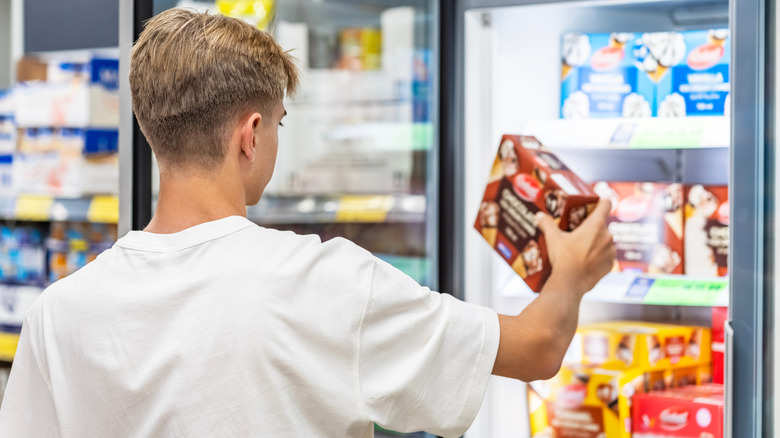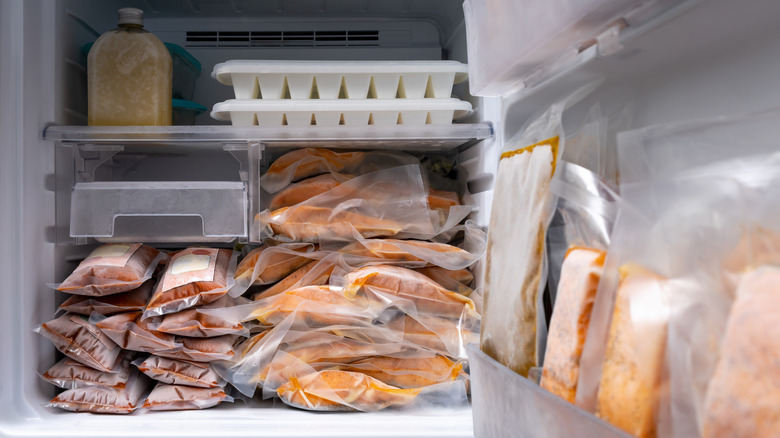Why You Should Think Twice Before Buying Frozen Food In Bulk
On the surface, buying frozen food in bulk seems like a no-brainer. It's budget-friendly, convenient, and helps cut down on grocery trips. But before you head to Costco to load up on 50-pound bags of whole-grain flour and huge tubs of mixed nuts (after all, your freezer isn't just for frozen food and leftovers), it's worth considering the not-so-cool downsides. Unless you live in a commercial kitchen or have a chest freezer, space is precious.
Overloading your freezer with bulk items can lead to more stress than savings. When your freezer is packed tighter than a can of sardines, airflow suffers. Poor circulation can cause temperature inconsistencies, meaning your food might not stay at the safe, consistent zero degrees Fahrenheit needed to keep it fresh. Even worse? An overloaded freezer can force the compressor to work harder, potentially shortening the life of your appliance or leading to expensive repairs.
We get it. Bulk frozen items often go on sale, and it's easy to feel like you're saving money by buying more. But unless you're genuinely going to eat it all before freezer fatigue or expiration dates hit, it's a false economy. However, you don't want a completely empty freezer, either. Experts recommend keeping it at around 75 to 80% full, as well as keeping an eye on appropriate spacing and air flow. And if you end up needing a second freezer simply to store your bulk buys, that's just an added expense – not to mention making your environmental footprint that much bigger. Definitely not cool.
Food waste defeats the point
One of the main motivations behind bulk buying is to reduce waste, but ironically, it can have the opposite effect. When frozen food disappears into the icy abyss, it's easy to forget what you actually have. Plus, freezing food isn't the answer to everything. Freezing food halts the growth of bacteria, but it doesn't preserve flavor or texture indefinitely. To be sure, it won't spoil the way fresh produce does, but your foods can definitely suffer from too-long freezing. Over time, even well-sealed items can be damaged from freezer burn, turning once-crisp veggies mushy or drying out meats until they're more suitable for dog food than the dinner table.
Buying frozen food in bulk can be a smart strategy if you're organized, have the space, and truly eat what you buy. But without a plan, it leads to freezer chaos, forgotten food, and wasted money. If you're not rotating your stock or labeling dates on leftover foods, you'll likely end up tossing forgotten items, which hurts your wallet and the planet.
Bulk frozen food also assumes a level of meal planning and consistency that few of us actually maintain. We'd all like to be the type of person who makes green smoothies every morning, but buying ten pounds of pineapple chunks won't magically change you. Try striking a balance: Buy only what you know you'll use, keep an inventory list on the door, and leave room in the freezer for flexibility (and the occasional pint of ice cream).

